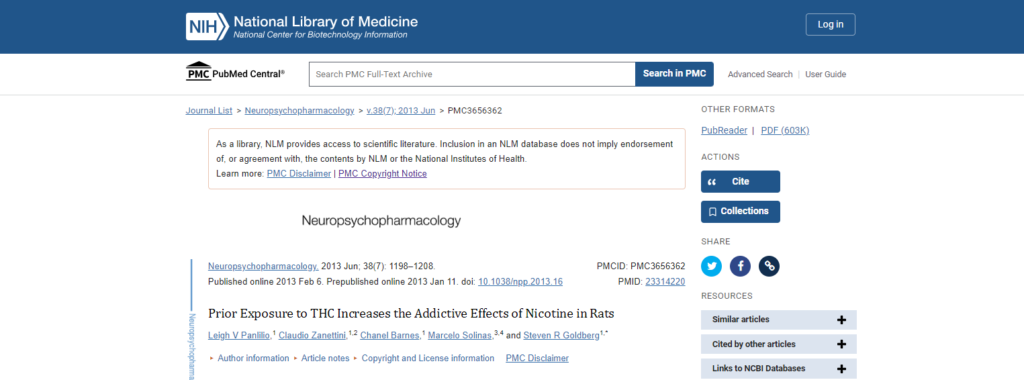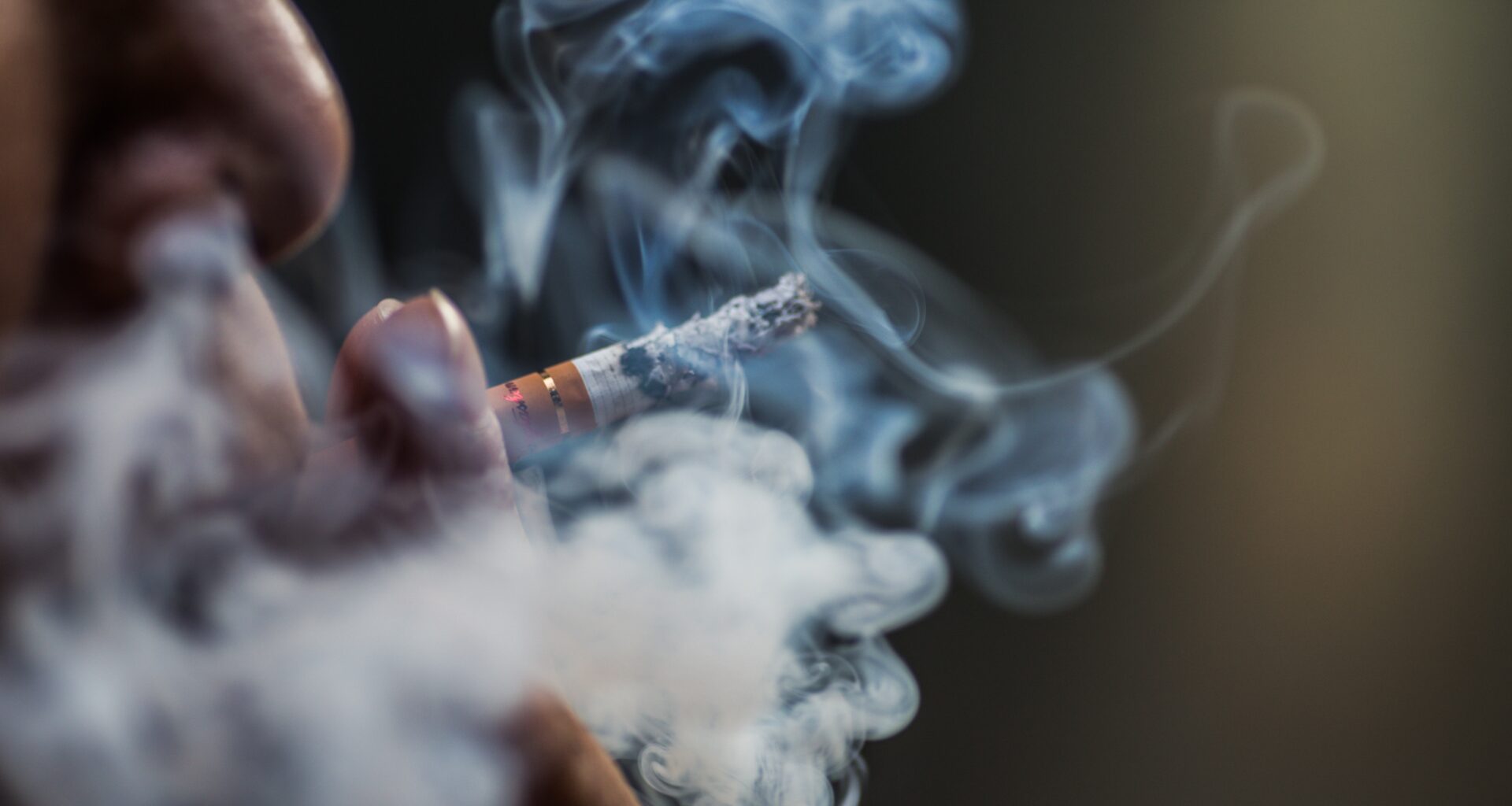the health strategist
institute for strategic health transformation
& digital health
Joaquim Cardoso MSc.
Chief Research and Strategy Officer (CRSO),
Chief Editor and Senior Advisor
September 20, 2023
What is the message?
Prior exposure to THC, the active compound in cannabis, increases the likelihood of rats acquiring and persisting in nicotine self-administration, suggesting a potential link between cannabis use and nicotine addiction.
These effects are unique to nicotine and not observed with other drugs like heroin or cocaine.
While these findings provide insights into the gateway effect between cannabis and tobacco use in rats, their direct applicability to human behavior should be interpreted with caution.

One page summary:
The article “Prior Exposure to THC Increases the Addictive Effects of Nicotine in Rats” investigates the impact of prior exposure to delta-9-tetrahydrocannabinol (THC), the active component in cannabis, on the addictive potential of nicotine in rats.
The study aims to understand whether THC exposure contributes to an increased risk of nicotine addiction, potentially shedding light on the gateway effect between cannabis and tobacco use.
The researchers conducted experiments on male Sprague–Dawley rats, dividing them into two groups: THC-exposed rats and control rats.
THC-exposed rats received THC injections for three days, while the control group received a placebo. Subsequently, the rats were assessed for their responses to nicotine.
Key findings from the study include:
- Increased Likelihood of Nicotine Self-Administration: Rats exposed to THC were more likely to acquire nicotine self-administration (94%) compared to control rats (65%). This suggests that prior THC exposure heightened the susceptibility of rats to nicotine addiction.
2. Altered Nicotine Reward: THC-exposed rats exhibited a higher intake of nicotine, even when the price (response requirement) for nicotine was increased. This indicates that THC exposure enhanced the perceived value of nicotine reward.
3. Contrasting Effects with Other Drugs: Interestingly, prior THC exposure did not lead to similar increases in the acquisition of self-administration responses for heroin or cocaine, nor did it enhance the rewarding effects of these drugs, unlike the observed effects with nicotine.
The study highlights the potential long-lasting effects of cannabis exposure on the risk of developing nicotine addiction.
Given the significant health consequences associated with tobacco use, including addiction and mortality, understanding the relationship between cannabis exposure and nicotine addiction is of paramount importance.
However, it’s important to note that these findings are derived from animal studies and may not directly translate to human behavior.
DEEP DIVE

This summary was written based on the article “Prior Exposure to THC Increases the Addictive Effects of Nicotine in Rats”, published by National Library of Medicine and written by Leigh V Panlilio, Claudio Zanettini, Chanel Barnes, Marcelo Solinas, and Steven R Goldberg, on February 6, 2013.
To read the full article, access https://www.ncbi.nlm.nih.gov/pmc/articles/PMC3656362/
Authors and Affiliations
Leigh V Panlilio,1 Claudio Zanettini,1,2 Chanel Barnes,1 Marcelo Solinas,3,4 and Steven R Goldberg1,*
1Preclinical Pharmacology Section, Behavioral Neuroscience Research Branch, Intramural Research Program, Department of Health and Human Services, National Institute on Drug Abuse, National Institutes of Health, Baltimore, MD, USA
2Department of Pharmacology, University of Texas Health Science Center, San Antonio, Texas, USA
3Experimental and Clinical Neurosciences Laboratory, INSERM U-1084, Poitiers, France
4University of Poitiers, Poitiers, France












